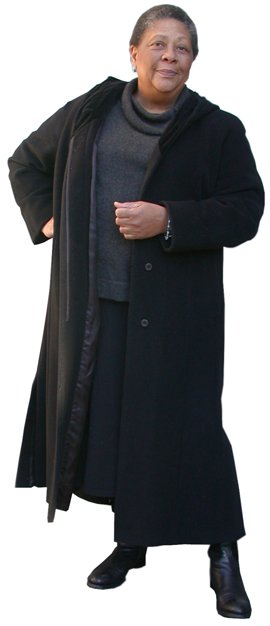Six years ago Marilyn Nelson—former poet laureate of Connecticut, author or translator of twelve books, and three-time National Book Award finalist—founded Soul Mountain Retreat at her own home in the rural Connecticut town of East Haddam. The mission of the retreat has been to encourage and support poets, especially those belonging to traditionally underrepresented racial or cultural groups. Nelson recently decided to step down from her position as executive director of the residency program at the end of 2010. As she enters her final year at the helm of Soul Mountain, Nelson speaks about her experience running the unique retreat.

Why did you start Soul Mountain?
For a long time I had a dream of sharing my quiet country life with other writers. I also wanted to have something like the experience Cave Canem writers have when they are together in workshops. I wanted to create a community based on these two elements: the shared life of the writer and the shared ethnic background.
Can you offer an example of what can happen in such a community?
One of the things that can happen in an ethnically segregated community is that people can have conversations that derive from their backgrounds. For example, one night, three or four African American poets were here having dinner. In the course of the meal somebody said something about Amos 'n' Andy, and we started talking about how we had all grown up watching Amos 'n' Andy. It was the highlight of the week when it came on. My own first pet, a little dog I bought with my own money, I named Ruby Begonia, the name of a character in Amos 'n' Andy. This was a conversation that wouldn't have happened in a mixed group.
What makes Soul Mountain different from other writers retreats?
My experience at other writers retreats has almost always been that I was the only person of color, or maybe there were two out of fifty. Something different happens when the dynamics are changed. I feel like even if I have a group of four or five white poets here, the dynamic is different because it is my home. It is not an institution.
Will Soul Mountain close after this year?
I haven't given up on being able to keep Soul Mountain alive. We are in the process of self-study, trying to redefine the mission and find some options. I know I can't continue this by myself. A friend recently told me that Soul Mountain is a mom-and-pop business, except that there is no pop. I am going to do this as a Marilyn Nelson thing for one more year and then I am going to step back and see if it can continue.
What have been some of the challenges of running Soul Mountain?
I came out of retirement in order to make Soul Mountain happen. For the first years, we had a grant from the University of Connecticut, but it depended on my continuing to teach. I lost that grant [in 2008] when I decided to retire again. When I agreed to the contract, I believed the UConn Foundation would do development for Soul Mountain, but I discovered that they would not raise money. It was like being tossed in the middle of the ocean and watching the ocean liners sail off into the sunset. I had no business-management skills.
If you could imagine Soul Mountain in 2020, what would you want it to be?
On a practical level, I'd hope Soul Mountain could be open year-round. I'd hope we would be able to return to the original practice of paying guests a stipend to be here. I'd also hope to have partnerships with poetry organizations like Cave Canem, Kundiman, and Radius of Arab American Writers. I'd hope there would have been a lot of people who had appreciated the beauty of this spot, the serenity of the house, the joy and seriousness of living in the community, and who would have taken some of the good vibes, put them into their writing, and sent it out into the world.
Kaveh Bassiri is cofounder of Triptych Readings and the literary-arts director of the Persian Arts Festival. His writing won the 2008 49th Parallel Award for Poetry from the Bellingham Review.









Comments
Leslie McGrath replied on Permalink
Soul Mountain